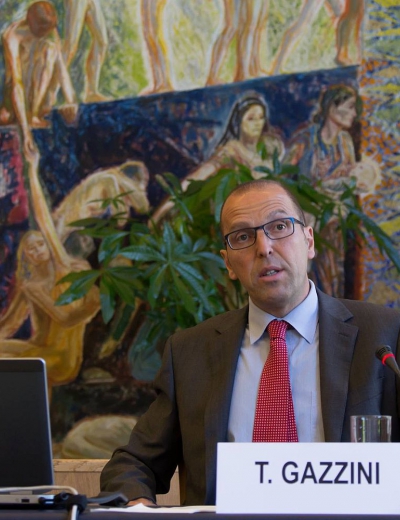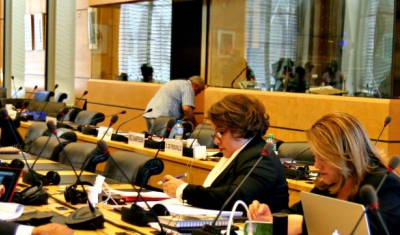The Rules Governing the Use of Force in International Law


ICRC
Descriptive
This online short course provides an overview of the content and evolution of the rules governing the use of unilateral force in international law, including military intervention on humanitarian grounds and the fight against international terrorism. It focuses on the practice of states and international organizations.
This course focuses on the practice of states and international organizations. It has two main closely related objectives. First, it provides an overview of the content and evolution of the rules governing the use of unilateral force in international law, including military intervention on humanitarian grounds and the fight against international terrorism. During the course, the legal issues raised by the main recent cases of unilateral force, especially Kosovo (1999), Iraq (2003), Syria (since 2014), Ukraine (2014 and 2022), and Gaza (since 2023), as well as their normative implications will be thoroughly and critically analysed. Second, the course will address the key features, evolution and shortcomings of the United Nations collective security system, from its creation in 1945 to the so-called authorization practice, which was inaugurated during the first Gulf Crisis (1990-1). The interventions in Libya (2011) and Mali (2012-3) will serve to trigger a discussion on the role of the United Nations and regional organizations in maintaining and restoring international peace and security.
Online
This is an online short course.
Schedule
Classes will take place online during lunchtime on:
-
09.04 from 12-14h (CET)
-
10.04 from 12-14h (CET)
-
11.04 from 12-14h (CET)
-
15.04 from 12-14h (CET)
-
16.04 from 09-11h (CET)
-
17.04 from 12-14h (CET)
Audience
This course forms part of the Geneva Academy Executive Master in International Law in Armed Conflict. It is open to professionals – diplomats, lawyers, legal advisers, judges, NGO staff, human rights advocates, media specialists, professionals working in emergency situations, UN staff and staff from other international organizations – who are not enrolled in the Executive Master and who want to deepen their expertise in this specific issue.
Fee
The fee for this short course is 1,250 Swiss Francs. In case of cancellation by the participants, CHF 200 won't be returned.
Certificate
Participants obtain a certificate at the end of the course (no ECTS credits are gained).
How to Apply
Applications must be submitted via this online form.
If you encounter problems with your application, do not hesitate to contact us.
Your application will need to include:
- A short motivation letter (no more than one page)
- Your curriculum vitae
- Proof of your competence in English (a certificate or statement highlighting your solid background in English)
- Once admitted to the course, participants receive instructions on how to pay. Proof of payment is required before you begin the course.










